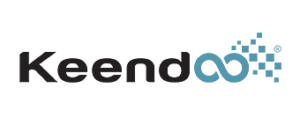Food health crises most often arouse collective fear because they involve a degree of uncertainty and directly affect people's health. Mad cow disease, the dioxin scandal and, a few years later, the contamination of minced steaks by E.coli bacteria... all these crises have had an impact on the behaviour of consumers, who are increasingly suspicious and demanding when it comes to food. These crises generally reveal a lack of transparency about the quality of products sold. Suspicions about the "naturalness" and "authenticity" of food products are now being raised, as well as the origin of the production or the way the product is made. The experience of past food crises has also shown how the media coverage of crises feeds fears and affects people's perceptions of risks. However, according to a study published on 7 December 2016, France leads the way in the quality of its food system and is notably champion in the nutritional quality of its food.
Food is safer today. The detection of risks is better and the management of these risks is more efficient. Because if the number of alerts is increasing, they are not linked to an increase in accidents but rather to increased knowledge of the risks to be managed, says Paul Mennecier, Head of the Food Service at the Ministry of Agriculture and Agri-Food.
The gradual digitalisation of the food sector now makes it possible to better trace all the raw materials making up a product from its origin to its processing and marketing. Added to this is the strengthening of regulations. All operators in the food chain must meet regulatory obligations to guarantee the conformity of the foodstuffs they put on the market. Despite this, professional and institutional players are sometimes confronted with alert situations that may put consumer health at risk, hence the need for rapid, concerted and effective action. Regulation (EC) No 178/2002 lays down the procedures relating to food safety. In particular, it explains the RASFF, a rapid alert system tool that is particularly effective in crisis management for sharing information with the general public. It allows the European Commission, Member States' food and feed control authorities and organisations to exchange information quickly and efficiently when a health risk has been identified.
In this crisis of confidence, all the players in the food industry have a role to play in reassuring consumers and raising their awareness. Beyond the nutritional quality of products, their role is to provide relevant and reliable information.
Regulation (EU) No. 1169/2011, known as "INCO", requires manufacturers to provide better information to consumers via food labels/packaging. As summarised by the ANIA, it presents 5 major changes for the consumer:
- The identification of allergens in the list of ingredients
- Nutritional information to become mandatory and uniform
- Improving the readability of labels
- Mandatory origin labelling of meat from 1 April 2015
- Access to all information for distance selling products
In addition to this regulatory information, it seems necessary to accurately trace elements such as: the origin of raw materials and the identification of their suppliers, information relating to production sites and manufacturing practices, product analyses (microbiological, physico-chemical, organoleptic), etc. This exhaustive and up-to-date data has enabled players in the sector to trace the origin of the product and to communicate the correct information during crises such as "Chinese milk", or the presence of histamine in tuna. They also enable us to respond on a daily basis to customer queries from the consumer services of manufacturers and distributors. All these actions prove that a better control of product data fills a past information deficit with the aim of gradually regaining consumer confidence in the nutritional quality of the food they eat.

